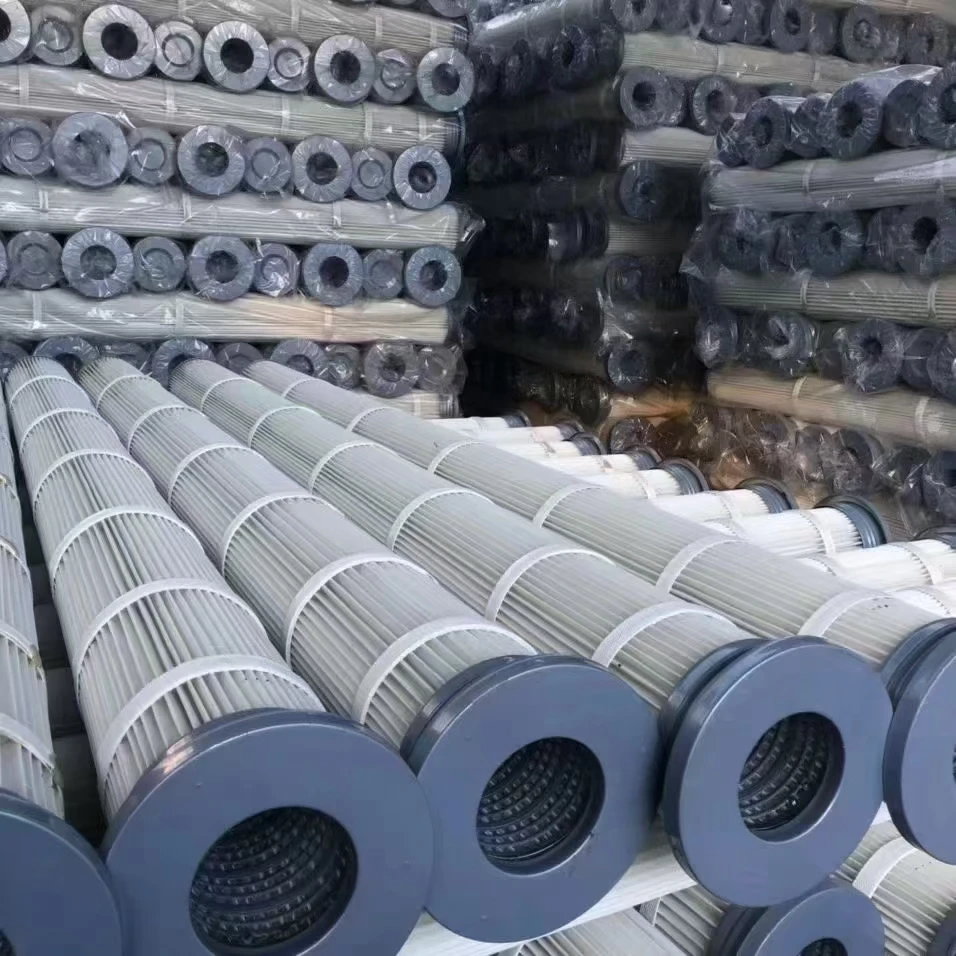 Tel:
+8615930870079
Tel:
+8615930870079
oct. . 21, 2024 11:33 Back to list
Efficient Dust Collection with Pleated Filters for Enhanced Air Quality and Performance
The Importance of Pleated Filters in Dust Collectors
In various industrial settings, dust collection systems play a crucial role in maintaining a clean and safe working environment. One of the most effective components of these systems is the pleated filter. Dust collector pleated filters are designed to capture particulate matter effectively while promoting improved airflow, ultimately enhancing the efficiency of dust collection systems. In this article, we will explore the characteristics, advantages, and applications of pleated filters in dust collectors.
Understanding Pleated Filters
Pleated filters are typically made from synthetic materials, such as polyester or polypropylene, and feature a series of folds or pleats that increase the surface area available for filtration. This design allows pleated filters to trap dust and debris more efficiently than traditional flat filters. The pleats create additional depth, which can capture more particles without significantly impeding airflow. The increased surface area leads to lower pressure drops across the filter, ensuring that the dust collection system operates efficiently.
Key Advantages of Pleated Filters
1. Enhanced Filtration Efficiency Pleated filters can trap smaller particles due to their increased surface area and depth. This is crucial in environments where fine dust can pose health risks to workers or where equipment may be sensitive to contaminants.
2. Longer Lifespan The design of pleated filters allows for better dust holding capacity, which means they can last longer before needing replacement. This results in reduced maintenance costs and less frequent filter changes.
3. Reduced Energy Consumption With lower pressure drops compared to conventional filters, pleated filters require less energy for air to pass through. This not only saves on energy costs but also extends the lifespan of the dust collector and its components.
dust collector pleated filter

4. Versatility Pleated filters come in various sizes and configurations, making them suitable for a wide range of applications in industries such as woodworking, metal fabrication, food processing, and pharmaceuticals. Their adaptability allows industries to meet specific filtration needs without compromising efficiency.
5. Ease of Installation Many pleated filters are designed as drop-in replacements for existing filter systems, making installation straightforward and hassle-free. This simplifies the maintenance process, allowing operators to quickly change filters when needed.
Applications of Pleated Filters
Dust collector pleated filters find applications in numerous industries. In woodworking, they are essential for capturing fine sawdust and wood particles, ensuring a cleaner work environment and reducing fire hazards. In metal fabrication shops, these filters help control metal shavings and fine dust generated during cutting and grinding processes.
In the food processing industry, maintaining hygiene standards is paramount, and pleated filters are used to capture flour dust, sugar dust, and other fine particles that can contaminate products. Similarly, in pharmaceutical manufacturing, where cross-contamination must be avoided, pleated filters effectively collect airborne dust while ensuring a sterile environment.
Furthermore, pleated filters are increasingly being utilized in commercial HVAC systems. They enhance indoor air quality by capturing allergens and other particulate matter, protecting the health of occupants and ensuring compliance with air quality standards.
Conclusion
Dust collector pleated filters represent an invaluable component of modern dust collection systems. Their unique design offers numerous advantages, including enhanced filtration efficiency, longer lifespan, and reduced energy consumption. As industries continue to evolve and prioritize clean air standards, the demand for advanced filtration solutions will only grow. Pleated filters will undoubtedly play a pivotal role in ensuring a cleaner, safer, and more efficient working environment across a multitude of applications. Investing in quality pleated filters not only benefits the workplace but also contributes to the overall health of workers and the environment.
-
Types and Applications of Air Filtration CartridgesNewsJul.28,2025
-
The Role of Gas Turbine FiltersNewsJul.28,2025
-
Mastering Air Filter Cartridge UseNewsJul.28,2025
-
Advanced Turbine Filters for Modern Gas TurbinesNewsJul.28,2025
-
Cellulose Air Filter Cartridge Advantages in Dust FiltrationNewsJul.28,2025
-
Cellulose Filters for Air Particle ReductionNewsJul.28,2025

 Email:
Email:





